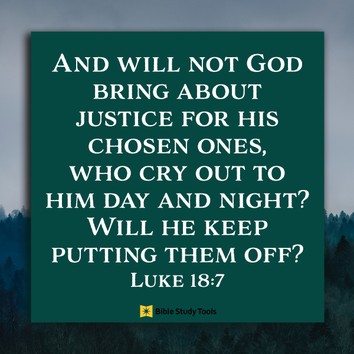Who are 'The Least of These'?

Matthew 25:31-46 is a beautiful statement of Jesus’s concern for the weak and the vulnerable. It’s also a challenging exhortation for Christians to model the same concern.
But what exactly does Jesus mean by “the least of these”?
It’s often assumed that “the least of these” are society’s poor and downtrodden, and that, by implication, Jesus would have us support any program (church, government, or otherwise) that aims to help hurting people. While it is certainly good to care for those outside the church (Gal. 6:10), we must be careful not to make Matthew 25 say more than it means to say. How the government spends our tax dollars is a question that sincere Christians can disagree on. It’s not my place as a pastor to make definitive statements on proposed federal budgets.
What’s more important to me is that we handle the Bible carefully, both from the pulpit and in our public pronouncements. Which is why we should try to understand “the least of these” in its proper context. What Jesus says in Matthew 25 is not “conservative” or “liberal.” It’s Christian, and has everything to do with how we treat other Christians.
“The least of these” refers to other believers in need—specifically, itinerant Christian teachers dependent on other Christians for hospitality and support. That’s my answer to the title of this blog post.
Let me offer four points in support of this interpretation.
Supporting Points
1. In verse 45 Jesus uses the phrase “the least of these,” but in verse 40 he uses a more exact phrase: “the least of these of my brothers.” The two phrases refer to the same group. So the more complete phrase in verse 40 should be used to explain the shorter phrase in verse 45. Whatever “the least of these” is about, it’s about “the least of these” who are brothers.
The reference to “my brothers” cannot be a reference to all of suffering humanity. “Brother” is never used this way in the New Testament. The word always refers to a physical/blood brother or to the spiritual family of God. With regard to the first category, Jesus is clearly not asking us only to care for his brother James. He must be speaking from the second category, insisting that whatever we do for believers in need we do for him.
This interpretation is confirmed when we look at the last time before chapter 25 where Jesus talks about “brothers.” In Matthew 23, Jesus tells the crowds and his disciples (v. 1) that they are all brothers (v. 8). The group of “brothers” is narrowed in the following verses to those who have one Father, who is in heaven (v. 9) and have one instructor, Christ (v. 10). “Brother” is a narrower category than all suffering people or all people everywhere. Those who belong to Christ and do his will are his brothers (Mark 3:35).
2. Likewise, it makes more sense to think Jesus is comparing service to fellow believers with service to him, rather than to hear him saying, “You should see my image in the faces of the poor.” Granted, Jesus was a “man of sorrows,” so other sufferers may be able to identify with Jesus in a special way. But in the rest of the New Testament it’s not the poor but the body of Christ (the church) that represents Christ on earth. Christ “in us” is the promise of the gospel for those who believe, not an assumed reality for those living in a certain economic condition.
Matthew 25 equates caring for Jesus’s spiritual family with caring for Jesus. The passage does not offer the generic message: “care for the poor and you’re caring for me.” This doesn’t mean God is indifferent to the concerns of the poor or that we should be either. It simply means that “the least of these” is not a blanket statement about physical deprivation.
3. The word “least” is the superlative from of mikroi (little ones), and mikroi always refers to the disciples in Matthew’s gospel (10:42; 18:6, 10, 14; see also 11:11).
4. The similarity between Matthew 10 and 25 is not accidental. In Matthew 10:40-42, Jesus tells the disciples, “Whoever receives you receives me, and whoever receives me receives him who sent me. The one who receives a prophet because he is a prophet will receive a prophet’s reward, and the one who receives a righteous person because he is a righteous person will receive a righteous person’s reward. And whoever gives one of these little ones even a cup of cold water because he is a disciple, truly, I say to you, he will by no means lose his reward.” The context for these remarks is Jesus sending out his disciples to minister throughout the towns of Israel (vv. 5-15). The disciples were to take no bag or staff for the journey. Instead, they were to seek a “worthy” house that would welcome them in. Their success as preachers would depend upon the kindness of others. In the face of persecution and a hostile world (10:16-39), Jesus exhorts his followers to care for the traveling minister, no matter the cost. The disciples would depend upon the good will of others to welcome them, feed them, and support them in their itinerant ministry. So Jesus explains that to show love in this way to his ambassadors is actually to show love to him.
One of the first post-canon documents, The Didache, demonstrates that caring for traveling ministers was a pressing issue in the first centuries of the church’s history. The Didache—essentially, an early church constitution—contains 15 short chapters, three of which deal with the protocol for welcoming itinerant teachers, apostles, and prophets. Some so-called ministers, the document concludes, are cheats looking for a handout. But as for the true teacher: “welcome him as you would the Lord” (11:2). This was a pressing issue in the early church and the crux of Jesus’s concern in Matthew 10 and 25.
Conclusion
Matthew 25 is about social justice in the sense that it is about caring for the needy. But the needy in view are fellow Christians, especially those who depend on our hospitality and generosity for their ministry. “The least of these” is not a blanket statement about the church’s responsibility to meet the needs of all the poor, let alone a definitive statement about federal budgets.
Again, this is no excuse to be indifferent toward the poor or unconcerned about hurting people. Christians can argue for any number of programs based on other texts and other principles. But as an exegetical point about Matthew 25, we must try our best to say what the text means to say. And in this case, Jesus says we are big trouble if we are too embarrassed, too lazy, or too cowardly to support fellow Christians who depend on our assistance and suffer for the sake of the gospel.
This article originally appeared on TheGospelCoalition.org. Used with permission.
Kevin DeYoung is senior pastor of University Reformed Church (PCA) in East Lansing, Michigan, near Michigan State University. He and his wife Trisha have six young children. You can follow him on Twitter.
Image courtesy: Pexels.com
Publication date: March 21, 2017
Originally published March 21, 2017.





